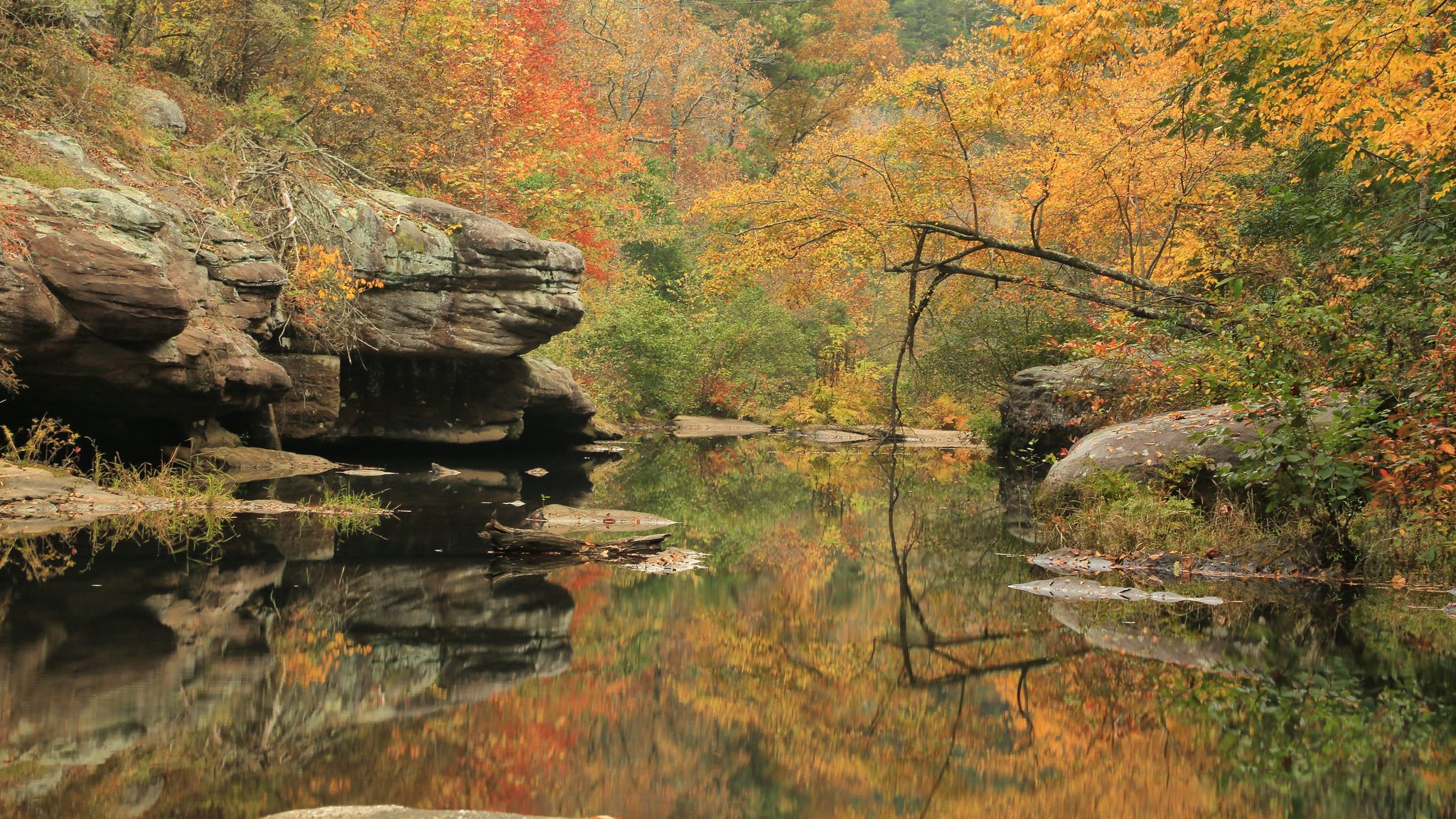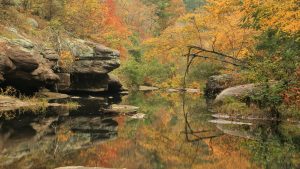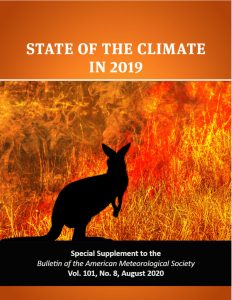September 2020 Newsletter

September 2020 Newsletter
Welcome to the Southeast Climate Adaptation Science Center’s September 2020 Newsletter.
For news and upcoming events related to the Southeast Climate Adaptation Science Center,
subscribe to our monthly newsletter.
SE CASC News | Resources | Publications | Tribal News | Partner News | Webinars | Events | Opportunities

Southeast Climate Adaptation Science Center News

Join us this fall for our newest virtual SE CASC Science Seminar Series. The first presentation on October 20 at 11AM ET will feature Dr. Michael Osland, Refining tipping points for range expansion of coastal mangroves in a warming climate. Learn more and register.
SE CASC-supported team including Faculty Affiliates, Jared Bowden and Jaime Collazo; 2012-13 Global Change Fellow, Adrienne Wootten; Research Ecologist, Adam Terando; and Deputy Director, Ryan Boyles, published High-resolution dynamically downscaled rainfall and temperature projections for ecological life zones within Puerto Rico and for the US Virgin Islands. The study explores the changes in temperature and precipitation in store for important ecological regions in the U.S. Caribbean, projecting large increases in the number of days with extreme heat and reductions in mean annual rainfall. Learn more.
SE/NE CASC Tribal Climate Liaison, Casey Thornbrugh, along with the USET Office of Environmental Management and the Communications team, received a Climate Adaptation Leadership Award in the Tribal category. Congratulations to all of those who received awards and honorable mentions! Learn more.
Faculty Affiliate, Jennifer Costanza is lead author on SE CASC-supported publication, Preserving connectivity under climate and land-use change: No one-size-fits-all approach for focal species in similar habitats, which demonstrated the unique future conservation priorities of individual species that currently share the same habitat. Learn more.
We just introduced our 2020-2021 cohort of Global Change Fellows but are already recruiting our next group of outstanding students! NCSU faculty, check out our Global Change Fellows FAQ page for information about how to become a SE CASC Faculty Affiliate and nominate a student.
Two new SE CASC science projects have been initiated, providing science that contributes to SE CASC Impacts and Adaptation science themes:
- Informing Management of Waterfowl Harvest in a Changing Climate
- Understanding Impacts on Southeastern Grasslands from Climate Change, Urban Expansion, and Invasive Species
Join us for monthly Climate Conservation and Coffee meetings hosted with our partners at the Southeast Conservation Adaptation Blueprint. Sign up here.
SE CASC Research Ecologist, Adam Terando provided climate expertise for a recent article.
2019-2020 Global Change Fellow, Deja Perkins was featured in an NBC News article highlighting stories about racism in the field of ecology.
Post by 2019-20 Global Change Fellow, Emily Reed: Finding Ways to Keep Mosquitoes at Bay.
Post by 2015-2016 Global Change Fellow, Erica Henry: Fire and Butterflies: Insights From a Natural Disaster.
Post by Faculty Affiliate, Kathie Dello: Record-Setting Rain and Heat? This Is the New Normal.
Post by Faculty Affiliates, Kathryn Stevenson and Nils Peterson and 2018-2019 Global Change Fellow, Danielle Lawson: How Kids Are Inspiring Adults to Address Climate Change.
Post by Faculty Affiliates, Christopher Galik and Gavin Smith: Climate Change and the Challenge of Community Relocation.
Resources
FEATURED RESOURCE
AMS State of the Climate in 2019

This international publication based on contributions from scientists worldwide is released each year with a detailed update on global climate indicators. The 2019 summary shows record high greenhouse gas concentrations, record high temperatures across the globe, and lower than average total precipitation. Authors provide a global overview and also present the findings by key ecosystems and regions. Learn more.
Resilient Rural America Project. Training Module #01, Rural Resilience to Extreme Weather: Integrating Land Use Strategies in Comprehensive Plans, a step-by-step streamlined process to consider how extreme weather affects your rural community and how to adapt to those changing conditions during your comprehensive plan update process. Learn more
Living Planet Report 2020. This World Wildlife Fund report explains that anthropogenic land use has been the biggest driver of biodiversity loss, with invasive species and climate change also becoming growing threats to millions of species. Learn more.
AdaptWest Climate Resilience Data Explorer. Conservation planners and practitioners can use the data presented in this map-based explorer to view maps and create reports of key landscape-level climate resilience and vulnerability metrics. Learn more.
Managing the Retreat from Rising Seas. This report by the Georgetown Climate Center details 17 case studies telling the story about how states, local governments, and communities across the US are approaching managed retreat due to sea-level rise and extreme weather events. The Southeastern cities of Charlotte, NC and Punta Gorda, FL are featured in this report. Learn more.
Good Natured Podcast. This podcast produced by Conservation Optimism shares uplifting and inspiring stories about conservation. Each episode will share the challenges, successes, and hopes for the future of an artist, scientist, business owner, or activist in the field of conservation. Learn more.
In the Media
How Decades of Racist Housing Policy Left Neighborhoods Sweltering. New York Times
Climate change is causing more rapid intensification of Atlantic hurricanes. Yale Climate Connections
Wildfires: Expert Answers to Your Burning Questions. NC State News
Notable Publications
Persist in place or shift in space? Evaluating the adaptive capacity of species to climate change. Assessing a species vulnerability to climate change is essential for climate‐adaptation planning and climate‐smart conservation. An understanding of a species’ adaptive capacity (AC), or the ability of species to cope with or adjust to climatic changes is key to understanding a species’ level of vulnerability. However, this concept is difficult to evaluate and apply in practice. In this study, researchers offer an attribute‐based framework to evaluate the AC of plant and animal species or populations. They identified two broad types of adaptive responses: “persist in place” – where species survive where they currently reside – and “shift in space” – in which tracking suitable bioclimatic conditions is necessary. This framework operationalizes the concept of AC and assists in identifying effective management actions under climate change. Link to article.
Accelerated river avulsion frequency on lowland deltas due to sea-level rise. River deltas, which support large cities and ecosystems, are subject to pressures such as reduced fluvial sediment supply, sea-level rise (SLR), and land subsidence from groundwater and hydrocarbon extraction, causing them to drown worldwide. Coastal rivers naturally nourish sinking land by distributing sediment through abrupt shifts in course, called avulsions, which can also cause catastrophic flooding. Researchers developed a mechanistic framework that combines theory, numerical modeling, and field observations to predict avulsion frequency on deltas with multiple self-formed lobes that scale with backwater hydrodynamics. They demonstrate competition between SLR and sediment supply on avulsion frequency, and show that current rates of relative SLR should cause avulsions to occur more frequently on deltas, with avulsion locations shifting farther inland in extreme cases. The quantitative framework to predict delta response to future SLR may be valuable for planning engineered diversions to nourish deltas and prevent catastrophic hazards. Link to article.
How many bird and mammal extinctions has recent conservation action prevented? Authors built on previous studies to quantify the extent to which the commitment to prevent ‘by 2020, the extinction of known threatened species,’ a target of the international Convention on Biological Diversity adopted in 2010, was achieved. They examined bird and mammal species categorized on the IUCN Red List as extinct in the wild, critically endangered, or endangered at any time since 1993, with ongoing threats to their persistence and with conservation actions implemented. The probability that each species would have gone extinct without conservation action during time periods 1993-2020 and 2010-2020 was estimated through expert elicitation, resulting in the assessment that conservation action prevented 21-32 bird and 7-16 mammal extinctions since 1993, and 9–18 bird and 2-7 mammal extinctions since 2010. Given the large number of species currently categorized as critically endangered and increasing pressures on biodiversity, they conclude that considerably greater efforts are needed to prevent additional extinctions. Link to article.
Human Dimensions: Raising Black Excellence by Elevating Black Ecologists Through Collaboration, Celebration, and Promotion. Authors detail the need for the scientific community to develop opportunities that actively encourage young, potential scientists of color to become science professionals through support of the work to which they contribute and mentorship. Noting that when a student feels as though they neither belong in science nor can identify as a scientist, this dissuades them from further pursuits in STEM, contributing to continued lack of diversity in these fields. The Black Ecologists Section of the Ecological Society of America was founded in 2015 as a space to provide international scholastic communication and support for individuals of ethnicities and nationalities underrepresented in STEM fields. They offer specific steps for ESA to support the section and recommend that leadership not only make statements about systemic racism but to elevate, support, fund, mentor, collaborate with, cite, and recommend Black scholars. Link to article.
In the Line of Fire: Consequences of Human-Ignited Wildfires to Homes in the U.S. (1992–2015). Less than 10% of the land area in the U.S. is categorized as wildland-urban interface (WUI), areas where communities intermingle with undeveloped wildland vegetation, and this area is projected to double by 2030. WUIs are considered to be at very high risk of wildfire due to human-started fire, but fine-scale estimates of homes at risk in these zones as well as their contribution to wildfire on a national scale are lacking. Researchers analyzed over 1.6 million wildfire events (1992–2015) designated as human- or lightning-caused as well as a spatio-temporal housing dataset of over 200 million housing records to develop a detailed estimate of the number of residential units threatened by wildfire each year; they combined this with estimates of wildfire costs to assess the role of human-caused wildfire in the WUI, areas with very low-density housing, and wildland areas. They showed that WUI-originated fires are a major source of wildfires in the US, account for a disproportionate number of homes threatened and suppression costs relative to its area, and expand to burn large areas of surrounding very low-density housing areas. Conclusions are that: 1) the need to determine how best to reduce human-related ignitions that result in damaging wildfires is great; and 2) implementing fuel treatments and prescribed burns may be justified to mitigate the risk and threat of future wildfires, particularly near and within the WUI. Link to article.

Tribal News
Visit USET Climate Change Headlines for updates on information regarding climate science events, funding opportunities, best practices, and highlights from across the USET region.
Western Forestry and Conservation Association has announced a 2020 Empowering Tribal Culture, Ecology, And Food Systems Webinar Series. The first webinar, Decolonizing the Indigenous Diet: Restoring Traditional Native American Food Systems, will be held on Sept. 30 at 2pm ET. Registration is required. More information.
NASA’s Indigenous Peoples Capacity Building Initiative is hosting an Introduction to Remote Sensing on Indigenous Lands course. The course will begin on Oct. 6 and will be held on Tuesdays and Thursdays from 12pm – 2pm ET. More information.
National Tribal Leadership Climate Change Summit will hold four virtual sessions this fall and winter. Session I focuses on Tribal climate policy and climate change implications for Tribes, First Nations, & Indigenous communities. More information and register here for Session 1, Oct. 13, 1 PM ET.
Native American and/or Alaskan Native students in the field of natural resources and/or environmental sciences may apply for the Native American Fish and Wildlife Society Southeast Region Scholarship. Apply here by Oct. 16.
Affiliated Tribes of Northwest Indians will be hosting a Tribal Climate Camp from May 23-28 in Anchorage/SouthCentral, AK. Learn more.

Regional Partner News
Wildlife Management Institute: Relevancy Roadmap Provides Guidance for Increasing Diversity, Equity, and Inclusion
Southeast Conservation Adaptation Strategy: Connecting Forest Action Plans to State Wildlife Action Plans
Carolinas Integrated Sciences and Assessments: Climate Needs Assessment Summary Report
Southeast Regional Climate Center: September Southeast Climate Monthly Webinar recording
Southeast Regional Partnership for Planning and Sustainability: Readiness and Environmental Protection Integration Program Fall Webinar Series
National Adaptation Forum: Climate Displacement Forum Series
Sentinel Landscapes Partnership: 2020 Sentinel Landscapes Accomplishments Report
South Atlantic LCC: Black Rail Conservation Plan complete

Webinars
Sept. 22 | 11am – 12:15pm | Presenting The First Blue Carbon Conservation Methodology
Sept. 22 | 1pm – 2pm | Apalachicola-Chattahoochee-Flint (ACF) River Basin Drought Assessment Webinar
Sept. 22 | 1pm – 4pm | Assessing and Communicating Climate Change Scenarios
Sept. 22 | 2pm – 3pm | Equity and Ecosystem Services Webinar – Part 1
Sept. 22 | 3:30pm – 4:30pm | An Overview of NOAA’s Fiscal Year 2021 Effects of Sea Level Rise (ESLR) Funding Opportunity for Potential Applicants
Sept. 24 | 12pm – 1pm | From Observation to Inference: How Satellites and Big Data Can Help Us Understand the Effects of Land Conservation Decisions
Sept. 24 | 3:30pm – 4:30pm | Geospatial Analysis, Coastal Water Quality, and Carbon Cycling: a Biogeochemist’s Perspective
Sept. 24 | 6:30pm – 7:30pm | Collecting Data, Advocating Change, Building Resilience in NC
Sept. 25 | 10am – 12pm | Water Utility Risk and Resilience to Climate Change Impacts
Sept. 28 | 2pm – 3pm | NEDTalk- Climate, Flooding, and Money
Sept. 29 | 9:30am – 10:30am | NOAA Eastern Region Climate Services: Earth System Modeling and Fisheries Applications
Sept. 29 | 3pm – 4pm | GOMA Virtual Tools Cafe – Socioeconomics and Ecosystem Services
Oct. 1 | 9am – 10am | Climate and Conservation Coffee
Oct. 1 | 1pm – 2pm | Equity and Ecosystem Services Webinar – Part 2
Oct. 6 | 3pm – 4pm | GOMA Virtual Tools Cafe – Informative and Planning
Oct. 7 | 12pm – 1pm | Ecosystem Modeling for Fisheries Management in the Gulf of Mexico
Oct. 13 | 10am – 11am | Southeast Climate Monthly Webinar
Oct. 13 | 1 pm – 2 pm | National Tribal Leadership Climate Change Summit Virtual Sessions: Session #1- Tribal Climate Change Policy
Oct. 15 | 10am – 11am | South Atlantic Third Thursday Web Forum
Oct. 20 | 11am – 12pm | SE CASC Science Seminar: Refining Tipping Points for Range Expansion of Coastal Mangroves in a Warming Climate
Oct. 22 | 3:30pm – 4:30pm | SE CASC Global Change Seminar: Climate Policy and Covid19

Upcoming Events
Find more upcoming events in our calendar.
Oct. 13 | Southeast Florida Regional Climate Leadership Summit | Virtual
Sept. 28 – Oct. 2 | The Wildlife Society Annual Conference | Virtual
Oct. 26 – 30 | UNC Water And Health Conference: Science, Policy And Practice | Virtual
May 10 – 12, 2021 | Carolina’s Climate Resilience Conference | Durham, NC

Opportunities
Student Announcements
Applications are being accepted for the Carl Storm Underrepresented Minority Fellowship. Apply here.
Students, post-docs, early career scientists can apply for Second Century Stewardship: Science for America’s National Parks Research Fellowships here by Oct. 29.
Hiring Announcements
Florida Fish and Wildlife Conservation Commission is hiring an Assistant Reptile and Amphibian Conservation Coordinator. Apply here by Sept. 24.
Environmental Studies Program at Dartmouth College seeks applicants for a tenure-track assistant professorship in the field of Ecosystem Science and Global Change. Apply here by Oct. 31.
North Central CASC seeks a Grasslands Project Post-Doctoral Researcher. Applications will be accepted here until the position is filled.
Southeast Conservation Corps and The Nature Conservancy are seeking a Conservation Easement Steward. Apply here.
NOAA Climate & Global Change Postdoctoral Program is accepting applications from Postdocs and Host scientists until Jan. 8, 2021. More details.
Research Grants
Natural Hazards Center has released a special call for proposals for public health and social science research in the inhabited U.S. territories of American Samoa, Guam, the Northern Mariana Islands, Puerto Rico, and the U.S. Virgin Islands. Submit proposals here until Sept. 28.
Coastal Protection and Restoration Authority is accepting proposals for specific projects in the Atchafalaya River Basin through Oct. 15. Get details.
Miscellaneous
South Central CASC, in partnership with the University of Oklahoma, is offering a free course on Climate Modeling, Downscaling, and Assessments. Sign up here until Oct. 4.
Submissions for oral presentations, posters, symposia, workshops, and trainings for 2021 Carolinas Climate Resilience Conference are invited until Dec. 4. Details here.
Early Career Climate Network invites early career climate change researchers and professionals to join and collaborate to support individual professional development. Learn more.
- Categories:


